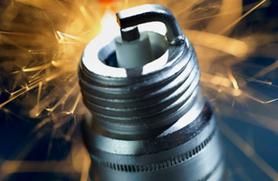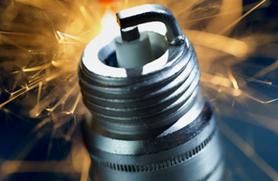\”

The age old question of whether or not a spark plug can really increase the performance and economy of a vehicle has raged on for years. While in general the basic consensus is no, to be quite honest there is definitely sufficient evidence out there today that not all spark plugs are created equal.
There are spark plugs that do seem to increase the efficiency of a vehicles engine on occasion, and there are certainly spark plugs that last a lot longer than others, which besides saving you additional tune-up costs, leaves just a few less old spark plugs in the landfill somewhere.
To really understand spark plugs efficiency, you first have to understand the basic principle behind them. The spark plug is the middle man between your ignition system and the power stroke of your standard gasoline engine.
The spark plug consists of a center electrode and a separate ground electrode placed just above the center electrode, both attaching to the body of the spark plug. In between the two electrodes is what is called as air gap, which is where a high voltage spark (40,000 to 100,000 volts) must travel to ignite the air/fuel mixture.
Once the mixture ignites, an explosion is created that drives the pistons down, cranking the cam shaft, which subsequently turns the driveline and powers your vehicle either forward or backward. Here is where we come to one of the biggest problems when it comes to the efficiency of your spark plugs, quenching.
Quenching can be described best as when the potential of a spark plug is drown out by being smothered by the electrodes below and above the air gap. This smothering action causes one electrode to zap the heat out of the sparks explosion, which is what is necessary to create a complete and efficient burn to offer the most fuel efficiency possible.
With so much at stake for every revolution of the engine, it is easy to see why the spark plug has been the brunt of a lot of improved formulations. One of these being the basic composition that a plug is made of.












